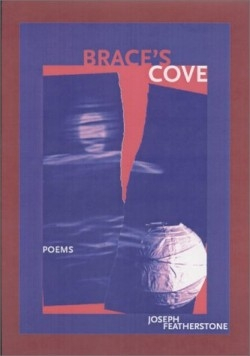Brace's Cove
A first poetry book by an author who has had numerous other careers (educator, political activist, editor of the New Republic), Brace’s Cove is not surprisingly retrospective, but Featherstone’s impulse is clearly lyric rather than autobiographic. If the children mentioned in one poem are grown in another, his own chemotherapy described along with his thwarted teenage visit to a tattoo parlor, the landscapes of Japan, Gloucester, and Michigan evoked side by side in a range of decades, Featherstone’s book reminds that memory is not chronological—and the ambiguities that arise work to the book’s benefit. Is “Middle Child” a poem referring to the generic beliefs regarding birth order, to one of the author’s children or to the author himself? “Now I hang like a silk shirt. / If you want my picture / I will draw a face in shadows / At dusk I slip around each tree,” he writes, and the poem’s clear voice echoes memorably among the book’s other narratives.
Though he often mentions family deaths and his own treatment for cancer in these poems, Featherstone’s tone is never elegiac; rather, he recalls a particular moment that gives some insight into his subject. In “Caitlin,” for example, he tells of a seven-year-old who broke her long silence after her brother’s death by singing to herself “each of the songs / from the funeral service. / The next morning in school // she announced to her class, / ‘I am ready for questions now.’ “ The image of Japanese paper lanterns inscribed with the names of the dead and set aflame to float in a lake (from “To the Inland Sea”) could serve as well to symbolize Featherstone’s appreciation of human life as luminous, devastating, too brief. “We barely have time,” he writes in the voice of American abstract painter Arthur Dove in “Arthur Dove’s Apology,” “to praise a bend of light.”
With simple language that only occasionally crosses the line into prosiness, Featherstone presents startling new views of the familiar, as in the poem “Once.” There he describes seeing his newly bald (post-chemotherapy) head in a mirror: “Imagine the shock / when I check my scalp in a new reflection // and see: all my childhood scars / are gone.”
Reviewed by
Janet Holmes
Disclosure: This article is not an endorsement, but a review. The publisher of this book provided free copies of the book to have their book reviewed by a professional reviewer. No fee was paid by the publisher for this review. Foreword Reviews only recommends books that we love. Foreword Magazine, Inc. is disclosing this in accordance with the Federal Trade Commission’s 16 CFR, Part 255.

